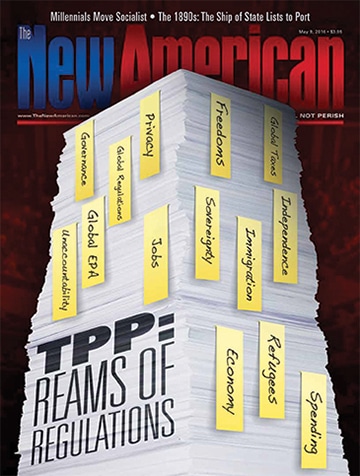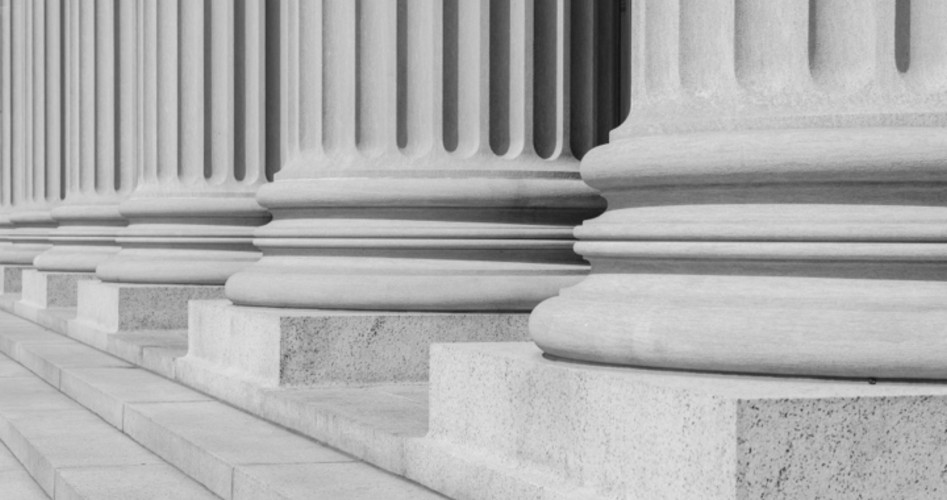American Principles
What Is the Proper Role of Government?
Government is a universal part of the human condition, from village and tribal elders to modern republics with their complex court systems, parliaments, congresses, and codes of law. Along humanity’s long upward climb from the chiefs and elders that presided over even the most primitive bands of aboriginals, government has assumed forms of increasing complexity, reach, and splendor. The ledgers of history are replete with despots petty and great, from local autocrats to the founders of great empires such as Alexander the Great and Genghis Khan. Some of these imperial powers — Babylon, Achaemenid Persia, and the various Chinese dynasties, for example — achieved considerable longevity, shored up by sophisticated legal codes and a capacity for ruthless efficiency in enforcing them.
Occasionally, men, moved by the belief that government should not be all-powerful, have tried to frame laws that define and limit the powers of government. Such were the 12 Tables of Roman Law and the English Magna Carta. Such, too, is the U.S. Constitution, which makes explicit the powers delegated by the people and the states to the federal government, with the proviso — spelled out in the 10th Amendment — that all powers not granted to the federal government were to be retained by the people and by the states.
Since the framing of the U.S. Constitution, many other countries have followed the American example in creating written constitutions of their own to define the powers of the state.
Humanity having generally concluded, after millennia of mostly despotic government, that it is better to limit the powers of rulers, elected officials, magistrates, and the like, the question naturally arises: What are the proper limits on government power? In other words, if government is not to be all-powerful and all-encompassing, what are its proper functions?
The great 19th-century French statesman and political philosopher Frédéric Bastiat, in his brief yet magisterial treatise The Law, observed that laws and government are merely the collectivization of the natural, God-given right to self-defense:
Each of us has a natural right — from God — to defend his person, his liberty, and his property.... If every person has the right to defend — even by force — his person, his liberty, and his property, then it follows that a group of men have the right to organize and support a common force to protect these rights constantly. Thus the principle of collective right — its reason for existing, its lawfulness — is based on individual right.... Thus, since an individual cannot lawfully use force against the person, liberty, or property of another individual, then the common force — for the same reason — cannot lawfully be used to destroy the person, liberty, or property of individuals or groups....
The law is the organization of the natural right of lawful defense. It is the substitution of a common force for individual forces. And this common force is to do only what the individual forces have a natural and lawful right to do: to protect persons, liberties, and properties; to maintain the right of each, and to cause justice to reign over us all.
With aphorisms such as these, Bastiat composed perhaps the simplest and most eloquent defense of liberty and limited government ever written. His simple, elegant logic is unassailable: Since government is derived from the consent of the governed, it cannot exercise any legitimate authority except what is granted to it by the individuals who support it. In other words, what is proper and moral for an individual to do may also be proper and moral for the state; but under no circumstances can the state do things that are immoral for the individual, because it is impossible for any individual to delegate power or authority he does not possess. For example, it is commonly agreed that murder is not authorized by God’s law; individuals do not have the right to take the lives of others for frivolous or vindictive causes. If this is the case for individuals, it is equally true for government. And this reasoning may be extended to theft, lying, or any sort of dishonest or immoral activity.
This being the case, how can any government be justified? If it may only do things that are morally justifiable for individuals, what legitimate purpose can it have? The one area where government has a considerable advantage over the individual, as Bastiat observed, is in the exercise of force. Collective force is always superior to individual force. Government is therefore ideally suited to protect. As collectivized force, it is able to repel foreign aggressors and protect its citizens from violence and theft committed by miscreants in their midst. Since it is wrong for any individual to steal from another, or to commit murder, it is proper to defend against such acts, and government provides an effective means to deter such criminal acts — and to punish malefactors who commit them.
Put simply, that government is legitimate which seeks to protect and vindicate individual, God-given rights. In so doing, however, government is ordinarily not justified in acting “preemptively,” or in other words, in curtailing freedom in the name of eliminating any possibility of crime ever taking place. It is in this misguided spirit that laws are framed, for example, that seek to disarm all citizens not only to prevent, but to preclude, violent crime. Advocates of “gun control” argue that mass shootings cannot occur if people are denied access to firearms. But such laws always curtail the unalienable right to self-defense among the law-abiding, and while they may make it harder for criminals to access prohibited weapons, they do not deter violent criminality overall.
Thus government’s legitimate role is as protector of individual rights. That its powers so often extend far beyond such activities is a testament to the readiness of men to accept illicit masters. But government power that is limited to the protection of God-given rights will by definition “provide for the common defense,” “establish justice,” “promote the general welfare,” and accomplish every other goal in the preamble to our Constitution.


